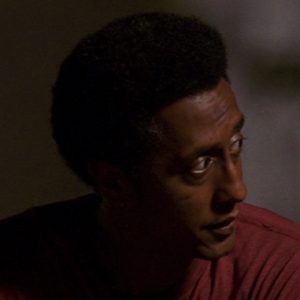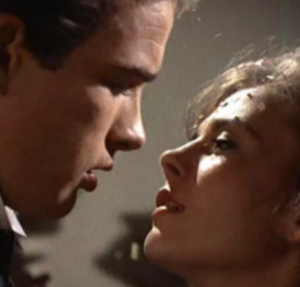Trump: An American Serial Melodrama
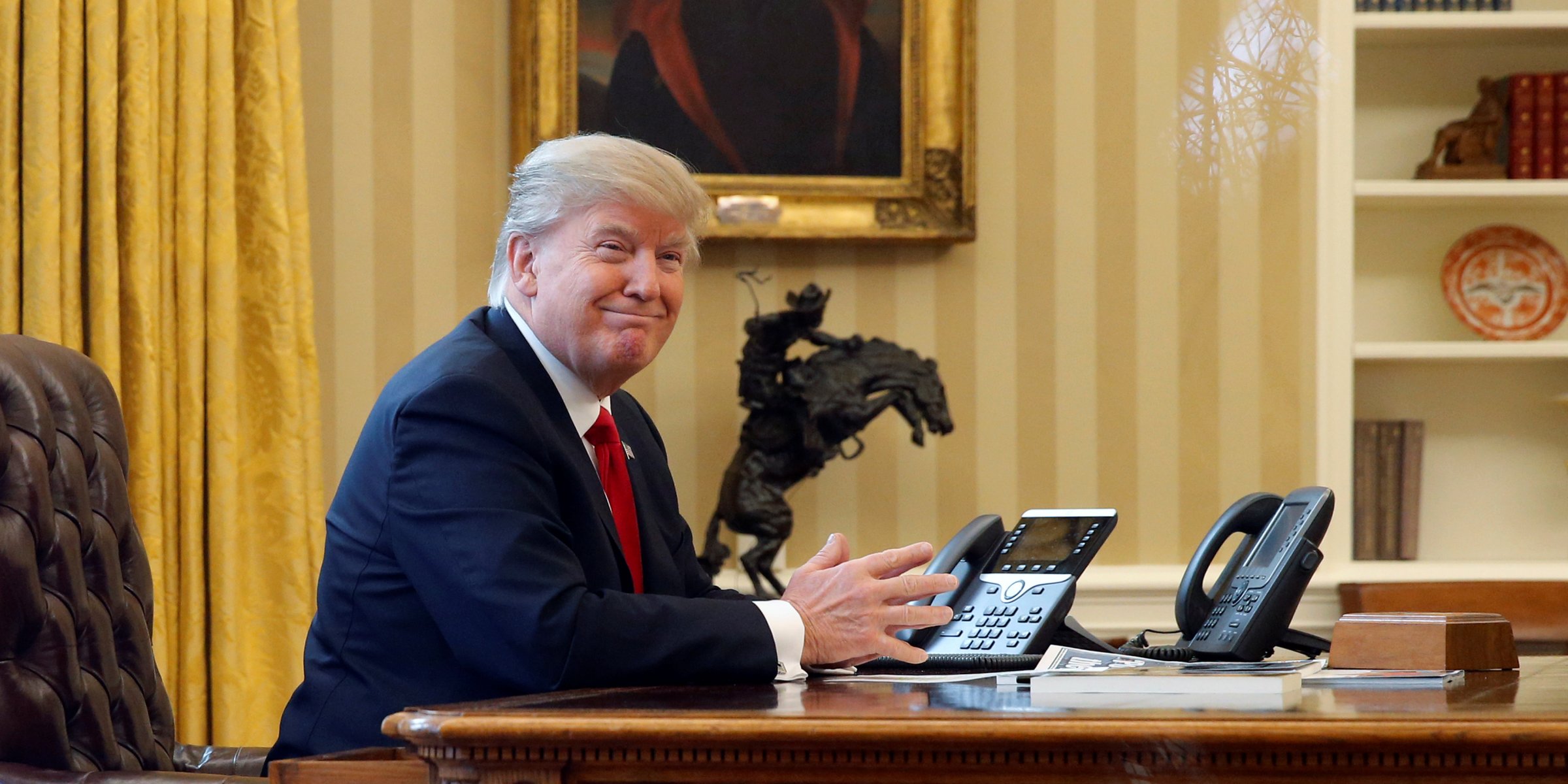
My paper begins with the question of what to call contemporary catastrophes if we do not call them tragedy. The title of a Nov 9, 2016 News Desk story published in the New Yorker by its editor David Remnick is “An American Tragedy.” It was that magazine’s best attempt, immediately after the presidential election, to assess what had just happened.
We use the term tragedy to name the highest form of catastrophe and Remnick was reaching for that highest term. I argue, however, that as long as we continue to think of our catastrophes as tragic, we are not likely to address their root causes. If I now say that the kind of narrative we seem caught in has none of the exalted singularity of tragedy and instead is a melodrama, you may agree with me, but probably for the wrong reasons. You may think that any story connected to Trump does not deserve the dignity and gravitas of tragedy. Rather, the Trump catastrophe that has befallen America participates in the tawdry emotional manipulation and sensationalism of melodrama. Trump is the archetypal villain of melodrama, right out of central casting, groping women, stalking Hillary Clinton on the debate stage, blaming and banning Muslims, blaming African Americans and Mexicans for the sufferings of innocent (white) Americans.
I recall the same kind of blame-melodrama approach when, in the early 1980s, Ronald Reagan called the Soviet Union an evil empire, suggesting that in a Cold War Manichaean world order, “we” were good, “they” were evil. It is time for Americans to understand that it is not possible to claim that some of us dignified victims live in tragedy while others inhabit melodrama. Culturally and politically the whole nation is caught up in forms of melodrama. Melodrama, not tragedy, is the dominant form of our contemporary mass culture; it is, to adapt the subheading, “Trump’s world.” Until America understands that, we will be caught, like Remnick, railing against “tragic fates” that cannot be altered. The very fact that they can be altered because they are melodrama, is the one important ray of hope that melodrama has to offer.
Tragedy is a fated, catastrophic fall from greatness that happens to a great hero or leader. Sometimes contributed to by the hero’s own flaws, it is nevertheless unavoidable. Judging from subsequent reporting by Remnick, who had already written a book on The Life and Rise of Barack Obama, the assessment of the 2016 election as tragedy did little more than begin to write the tragic sequel to the earlier story of the “rise” of the first black president of the US. In this story, Obama’s own tragic flaw appears to be his underestimation of the deep white backlash towards what had brought him to power in the first place: his “audacity” to “hope” that white America could overcome its longstanding fears and resentments of African Americans. Hope, as we shall also see, belongs to melodrama.
We do not live in a tragic age. Yet to give gravitas to expressions of sympathy, we say “I’m sorry for your tragedy” not “I’m sorry for your melodrama,” even though the death or the accident we acknowledge elicits the extreme pathos of melodrama, not the austerity and fatalism of tragedy.
Historically, melodrama replaced tragedy on the French stage after the French Revolution. Many theater historians would later dismiss this rise of a theater full of grand gesture, strong emotion and spectacular effects as an unfortunate phase soon overtaken by less extravagant forms of modernist realism. However, literary scholar Peter Brooks (1976) recognized the appeal and endurance of melodrama in what, for him, was a form of compensation for the loss of the tragic vision in a liberal, more secular age. To Brooks the “melodramatic imagination” represented not so much a “fall” from tragedy, as a loss of belief in its vision of the traditional imperatives of truth and ethics; melodrama was their quasi-religious replacement.
Though melodrama brought many new sensations and spectacular effects to the stage, Brooks (1976) was able to explain their logic beyond either mere “sensationalism” or simplistic moralism by arguing that in the absence of traditional truths and ethics, melodrama gave rise to non-linguistic apprehension of “moral legibility.” The pathos of suffering innocents unable to speak the truth due to the manipulations of villains, gave rise to new “structures of feeling.” These feelings, opposed to hierarchic social formations, whether of church, king or aristocracy, would gradually support emerging processes of individuation and democratization (Gledhill 2018, “Reach”). Many theater (and film) historians of the twentieth century would view this new kind of action-filled drama with music (melos) as failed tragedy.
Brooks’s insight, however, was to see the modernity of melodrama and its persistence, at least as far as the novels of Honoré de Balzac and Henry James. But because Brooks was not interested in mass culture, his cursory chapter on the era in which melodrama ruled on the French stage did not build a strong argument for melodrama’s persistence beyond literature.[11] [11] Though an important chapter in his later Reading for the Plot did do some of that work in thinking about the feuilleton fiction of Eugene Sue, it did not follow through by examining the stage melodrama of the same period.
Later scholars of drama and film (Louis James and David Mayer 1980, Gledhill 1987, Buckley 2018, Williams 1998, 2001, 2018) would trace a more continuous evolution from stage melodrama to film and television and an increasingly pervasive melodramatization of culture, coinciding with modernity and industrialization. Whatever the exact causes of its rise—whether Brooks’s loss of the tragic vision, incremental changes in a wildly popular theatrical genre of exciting pathos and action or industrialization made evident in the very mass production of the plays themselves, and the serialization of the popular melodramatic and gothic novels, the formation of the liberal individual subject, a new dramatic form, associated with new “structures of feeling” or Raymond Williams’s “felt sense of life” (173:63), gained ascendency and spread throughout Europe and the Anglo-Saxon world.
If tragedy is about the recognition of the hero’s inevitable suffering of a harsh fate, and about the poetry that expresses that suffering, melodrama, in contrast, belongs to liberalism’s promise of progress, individual self-determination, and the refusal of predetermined fates. Robert Heilman (1968), in one of the earliest comparisons between tragedy and melodrama, notes that tragedy is not about the plague in Thebes. Oedipus’s solution to the riddle of the Sphinx may end that plague, but the play is not about the afflictions of the city. It is about conflict and suffering within the great soul of the tragic hero. Melodrama, in contrast, is about the plague in Thebes, Calcutta or Baltimore. As in tragedy, bad things happen to protagonists of melodrama, but, melodrama—born out of liberal aspirations for liberty, equality, fraternity—enable hope for happier, more just endings. And even if that hope is dashed—as it often is the many melodramas with sad endings, melodrama still wants us to know what justice could be—that the plague could be wiped out, that poverty could be alleviated, that drug addiction and general human worthlessness could be averted.
Melodrama took hold, then, not just as a form of entertainment, not just as a popular genre, but as a “structure of feeling” responding to the upheaval of revolution. Or, even if Brooks overestimated the causal effect of the Revolution itself, perhaps it is a result of the manifold forms of modernity as new modes of understanding human experience through strong emotions and sensational effects. Though Brooks would insist that melodrama seeks a “moral legibility” that had become occulted in the new order, and that was officially inexpressible in language but metaphorically available in gesture, music and inarticulate cries, we do well to recognize that the moral clarity sought by melodrama, was never a matter of Sunday school-style moral lessons; or, if it was initially so in the early melodramas of Pixerécourt, such moral lessons, were, as theater historian Matthew Buckley has argued, the least modern and most conservative thing about them. Buckley (2018) also points out that as early as 1805, the
great wave of cape-and-sword plays, lurid gothic extravaganzas, and exotic/romantic adventure fantasies produced by Pixerécourt’s imitators made it all too evident…that melodrama’s engagement with morality can—like that of any genre—be exploited, rendered ironic, or simply pushed into the background to be used as a trapping for more sensational fare.
What too few have understood about the inexorable rise of melodrama as a mode of entertainment and experience is that it did not then die a slow death from ridicule in the wake of the rise of modernity, and, eventually, of modernism. Rather, melodrama was, from the very beginning, a product of modernity. It has marched through the centuries triumphant, though, like many a melodramatic victim or villain, misrecognized for what it is.
The discipline of Film Studies believed it “discovered” melodrama in the early 1970’s with the lush, florid, painful melodramas of Douglas Sirk of the 50’s—as if melodrama had ever been such a discrete phenomenon. But those of us who were eager to recognize what we then saw as the excesses of melodrama could only do so by looking back at its archaic quest to recognize good and evil as a throwback to a bygone era. In other words, rather than confront the fact of melodrama’s pervasiveness as it was happening all around us, we preferred to isolate certain aesthetically interesting, excessive and thus distanciating instances of it that seemed modernist in its effects. Little did the film discipline imagine, back in the 1970s, that melodrama had already exploded into a global, inter-medial mode dominating the mass cultural histories of modern theatre, film, and television drama, including many so-called post-modern forms, that all other dramatic genres, modes, and styles paled before it (Buckley 2018).
We often fail to recognize melodrama, and see (failed) tragedy in its place, because it seems to be the old-fashioned antecedent to modern realism. We forget that when Dickens in the mid 19th century tackled the then-novel problems of the work house and the glacial workings of justice in the courts, he was already modernizing melodrama from what it had been on the stage earlier in the century. We also forget that Hariett Beecher Stowe in the U.S. was also modernizing melodrama by addressing the still-novel problem of the sufferings of black slaves and that her serialized novel would generate many more theatrical versions before and after the Civil War. Because the very mention of an heroic Uncle Tom could only seem the most regressive form of melodrama to a post-civil rights America, this melodrama too seemed outdated. More recently, a serial television melodrama called The Wire tackled drug addiction, union corruption, police misconduct and dysfunctional city government, in inner city Baltimore. Many critics followed its creator, David Simon, in calling it tragedy because it was deemed so excellent and contemporary, when, as I have argued, it was actually excellent, modern melodrama.
As Christine Gledhill has noted, melodrama modernizes itself by confronting new and seemingly intractable social problems to the melodramatic end of recognizing virtue and an ideal of social justice unimaginable in tragedy. Melodrama is the form by which timely social problems and controversies have perpetually been addressed. As Gledhill saw, it is not opposed to what we recognize as realism. Rather, it enlists realism to generate outrage against realities that could and, to its creators should, be changed. Melodrama feeds upon the problem of these realities—the very injustice of them.
Yesterday’s melodrama is always outmoded but todays “good,” more realistic melodrama is rarely called melodrama because of the term’s bad reputation as ill-made, over-wrought, sensationalist drama.
However, we must recognize that one melodrama’s injustice is another’s justice and that the mode can never come down on the side of a purely objectively determined good. As I have argued in my book, Playing The Race Card: Melodramas of Black and White from Uncle Tom to O.J. Simpson, the villain of one melodrama might be Simon Legree, the evil slave driver who beats Uncle Tom to death, in one melodrama, but it might be the subsequently freed slaves in another.[22] [22] For example, the novel, and then the many play versions of Uncle Tom’s Cabin (1852 and beyond) offer a powerful example of a melodrama that once galvanized northern recognition of the evils of slavery through the depiction of black (often in blackface) suffering. White Americans from the North who either read the novel or saw any of its many theatrical versions were converted to the abolitionist cause, and in their conversion may well have helped bring about the Civil War. But after the defeat of the South in that war, and after the rise of the romance of the South’s “lost cause,” national sympathy shifted to the South and the suffering of the former masters and their women at the hands of their uncivilized former slaves. American national identity of the early 2Oth century — the Birth of a Nation (1915) that answered Uncle Tom’s Cabin — was thus forged upon the melodramatic threat to the virtue of white womanhood by the “black beast.” Thus, while melodrama champions the powerless, the white former masters, brought low by the Civil War and its aftermath, were deemed the powerless victims in D.W. Griffith and Thomas Dixon’s film, reversing the moral polarities of Uncle Tom’s Cabin. The nation itself, was refigured in this “anti-Tom” melodrama as the very victim of black violence which gained unity — its very re-birth as white supremacism—by the moral authority that routs the “black beast.” Melodrama is fickle. It observes no inherent moral truth of its own. It claims to be on the side of the powerless, but the powerless can be the slaves in one melodrama, and the former masters in another. It is as one dictionary puts it : a “dramatic or literary work in which the plot, which is typically sensational and designed to appeal strongly to the emotions, takes precedence over detailed characterization.” Of course, melodrama has not remained the same over its near 250-year history; in its constant effort to present a recognizable, more modern view of reality, adjusted its characterizations, modified its plots, and even tempered its presumed excesses.
Yet there is one sense in which melodrama has not been either modern or liberal: this is its consistent tendency to cleave to some good of the past and to seek to restore that good, rather than to forge a new society, a new polity. Unlike the mode of comedy, it does not seek the elimination of “blocking” characters to forge the creation of a new society. Rather, it seeks to return to the known virtues of the past. In this one sense, melodrama is atavistic. Christine Gledhill writes, “If realism’s relentless search for renewed truth and authentication pushes it toward stylistic innovation and the future, melodrama’s search for something lost, inadmissible, repressed ties it to an atavistic past” (1987, 31-32). Donald Trump’s campaign slogan to “Make America Great Again” is quintessentially melodramatic in this desire to return to a lost past rather than to forge a better, new future. Indeed, the very notion that the past was better than the present attests to the most important conservative force in the melodramatic imagination.
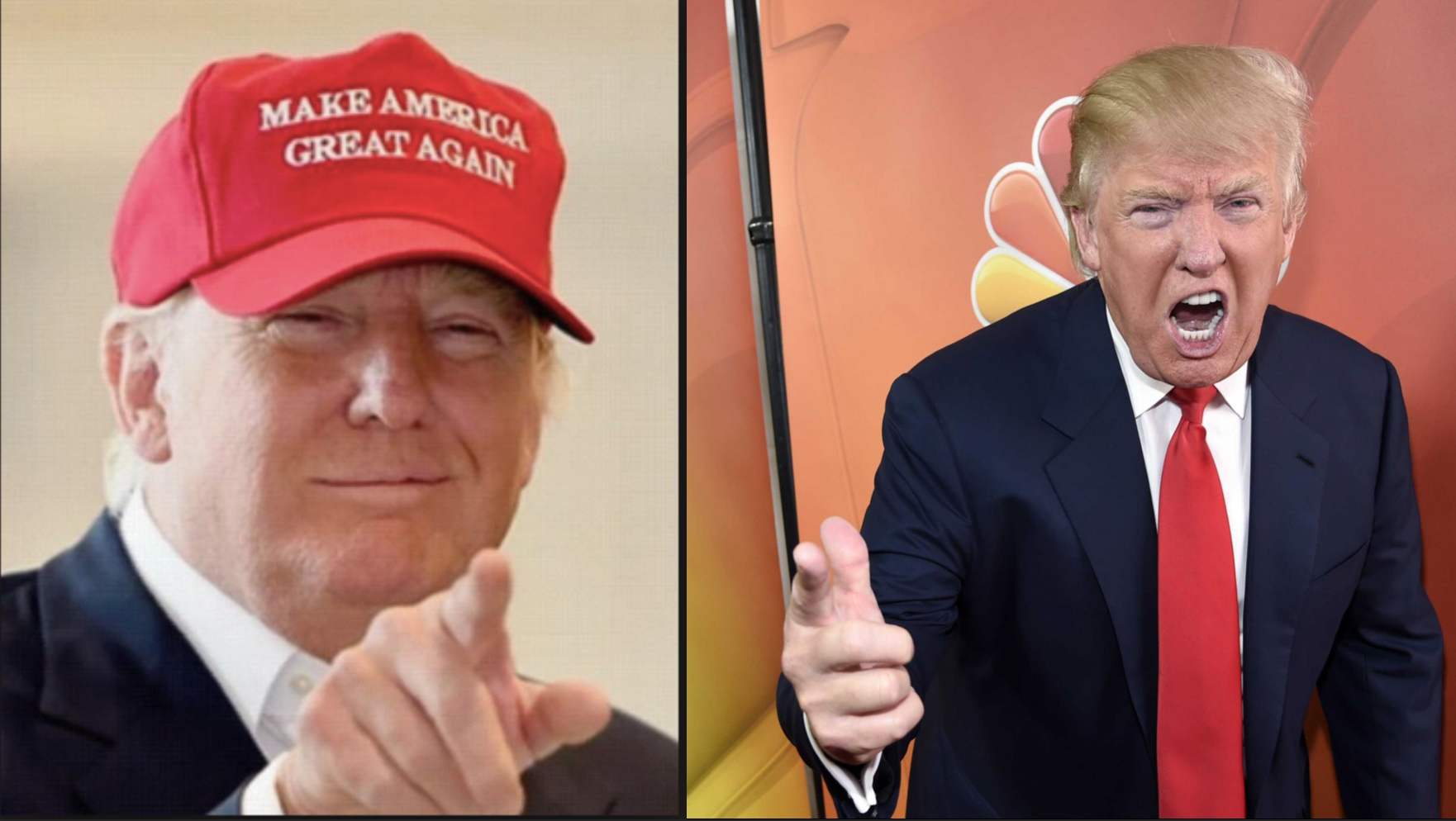
To save time, here in a nutshell, are a few other key features of melodrama that I consider important:
– Contrary to popular opinion, melodrama is the norm, not the exception, of our popular mass culture. It is not the crude, anachronistic predecessor to the apparent rise and dominance of a realist—and what in film studies has even been called “classical” realist—tradition. Melodrama did not die so much as it migrated, in its second century of existence, from the stage to the screen, to the airwaves, and the internet.
– Often, though not always, melodrama encompasses a fast moving plot with many twists and turns and breathless (rather than tragedy’s inevitable) peripeteia. Though melodrama does not only take serial form, it often seems that serials—whether the fast-moving serials of early cinema and radio, the soap revival of serial programs like Dallas in the 70’s or the “complex” serials of today’s cable—best embody its form. Whether well-crafted, as in many of today’s cable serials, or slap-dash, melodrama is not a plot that Aristotle would recognize.
– Melodrama has too often been regarded as a woman’s genre, when it is not a genre at all, but a mode that oscillates between masculinized action and feminized pathos in an ongoing dialectic.
– Melodrama has become central to America’s self-image as the locus of exceptional virtue. This is perhaps the most important quality for us to note with respect to Trump’s melodrama: although suffering itself cannot literally be said to automatically ennoble the sufferer, the pathos of the suffering victim entitled through suffering to become a righteous-action hero is the curious and often suspect alchemy of much conventional contemporary popular melodrama’s cultural power, and certainly of its American formulation. (To suffer and to be injured is, according to a certain Judeo-Christian framework which Nietzsche abhorred, to be morally empowered. Thus, as Wendy Brown has argued, the very injury that makes me see the evil in my injurer and the good in myself is the basis of a fundamentally resentful form of moralism—a Nietzschean ressentiment—which I find at the heart of much melodrama.
Elizabeth Anker has argued in a recent book on the political discourse of melodrama that the more fearful and vulnerable a population feels, the more likely it is to impose an even more intense Nietzchean “orgy of feeling” in its effort to feel more free from fear. Thus newer and more painful affects counter-intuitively relieve fears and vulnerabilities by promising that the newer and more intense sense of victimization can be fought against and thus pave the way for a future freedom (Anker, 15). We see this in mass entertainment action melodramas just as much as we see it in the stories we tell ourselves about our righteousness as a nation. We saw this in the Bush administration’s reaction to 9/11—we have been injured, we now have the moral authority to invade the (wrong) country— and we see it now in in the Trumpian backlash against educated elites as well as Muslims, African Americans, Hispanics and women.
The sensational, affective, exciting and moralizing dimensions of melodrama are not, then, a deviation from more “classical,” temperate norms, they are the very essence of popular American culture and they are the way our contemporary moving-image culture—by which I mean film, television, and large portions of the internet—continues to deal with the fundamental conflicts and inequities of gender, race, sexual identity and class—conflicts which became more overt in the 2016 election than ever before. The rise of Trump must make us sit up and take note that our national narrative has become one of unrelenting melodrama.
The absence of real alternatives to melodrama—manifest in the bankrupt self-righteousness of American politics, our race relations centered upon competing claims to victimization, and the recent Trumpian backlash to the political correctness of victimization, not to mention the sensationalist entertainments we enjoy—all suggest that if melodrama is our problem, it will only be better forms of melodrama that will be the solution. Indeed, if many today feel a righteous sense of outrage at the failures of our electoral system and the misguided choices of less educated white voters, it is because we are feeling ourselves to be the victims of a melodrama that we once felt superior to but which has come back to bite us, especially in the form of popular television to which I now want to turn.
Serial Television Melodrama
Many critics, myself included, have extolled the virtues of a new kind of serialized television melodrama (Williams 2014, Mittell 2015). Though I have insisted that such works should be called melodrama, many have opted for more evaluative terms like quality TV or complex TV instead. In a recent book on The Wire I argued that this 60 episode, five-season serial, which its author-showrunner David Simon tried to call tragedy, goes beyond the melodrama of individual villains and victims. It also reaches to tell the institutional dimensions of these stories as well. The serial expanse of “world and time” also affords a rich accumulative narrative unfolding, often frustrating linearity or obvious teleology.
If a fictional but fact-based serial like The Wire represents the best of contemporary serial television melodrama and, as I argue, also has the capacity to critique neoliberalism, then reality TV is possibly its more ugly underside: network television with commercials and serial “games” that lack this ability because they are often themselves inherently commercials for neoliberal status quo. Yet seriality plays a crucial role in both in that the goal of each is to keep viewers watching and in some form of suspense about outcomes. So rather than think of these two examples of serial television as opposites in quality and ideological message, I’d like to stress their formal similarities as serial melodrama in order to argue that if the problem of Trump melodrama lies in this form, then the solution to Trump melodrama must be found within popular culture as a better form of melodrama.
My point is that both belong to entertainment formats whose endings are never final except insofar as they can happen over again and thus do not reach the same kind of conclusions that proper, individualized works, created by one individual “author” can do. Here, I want to emphasize the impulse of storytelling that offers the appeal of renewal rather than the satisfaction of conclusion, for in serial storytelling it is the continuation, not the ending that matters (see Kelleter). Both of these serial melodramas belong to an increasingly common form of serial production and serial reception whose distinctiveness is that they overlap. This quality is also what Charles Dickens, serial novelist par excellence, once called a “periodical performance”: a repeated issuance of serial parts in a time span adjacent to their reception. In such a performance, narrative options are still open and a feedback loop influencing narrative is more possible than in works that are published or released after they are entirely written or created. The success of a serial only means to continue, not to reach a full and final conclusion.
Consider the “rules” of the popular reality TV show starring Donald Trump as host. The Apprentice, ran for 14 seasons (7 years) on NBC beginning in January 2004. Based on an originally British show, reproduced in 17 other countries, but most popularly in Britain and the US, it is a game show that begins each season with a new group of contestants.
Like most reality TV shows, and like the grand prototype of them all, Survivor, The Apprentice is about survival in a cutthroat world artificially created by the very rules of the game. In Survivor the contestants live on a primitive but scenic desert island deprived of the amenities of civilization. The Apprentice, created by the same producer, Mark Burnett, takes place in New York where contestants live in the Trump Tower and lack for no amenities. Yet the premise is the same: Darwinian survival of the fittest. Although it might seem that physical strength matters more in Survivor, actually it is the ability to manipulate fellow contestants that counts the most in both; strength and fitness matter in both but only at the level of image (Mark Andrevejic 2004, 203). In both cases the goal is not to be eliminated, either by being voted off the island by fellow contestants or by being fired by Trump. Indeed in the program’s opening song, Trump’s voice ominously clarifies underneath the song: “This is a dictatorship; there is no voting; someone will be fired.” Survivors stand to win big: a million dollars on Survivor ; a one-year $250,000 contract to run one of Trump’s companies in The Apprentice.
In The Apprentice the contestants left standing at the end seem to be those who have best modeled themselves on Trump himself. Viewers and contestants alike are initiated into the norms of breakneck efficiency, sales prowess, and social skills necessary for success in the neoliberal workplace (Coudry and Littler). Contestants in The Apprentice compete, initially in teams, called corporations. In the first season the two corporations were divided into all-female and all-male groups and the first competitive task was to see who could sell the most lemonade on the streets of New York City. The women won by using sex appeal. In the next episode they compete to design the advertising campaign of Marquis Corporate Jets. The women win again by making the jets look phallic in the photo ads. Each episode ends with the losing corporation going to Trump’s boardroom with the expectation that at least one of them will be fired. Defensive bickering often ensues over who failed the team the most, ending in the climactic firing. This is a particularly famous example from episode 6 of Season 4.
The game supposedly answers the question: what does it takes to get ahead in corporate business? The answer inevitably naturalizes the dog-eat-dog nature of work. While the corporate teams must cooperate in each episode to compete, when the weeks losers get to the boardroom, they also play the long game of trying to eliminate the most threatening member of their own team. Competitors also compete to demonstrate the most abiding “passion” for the job—a key term in neoliberal competition. Passion,” as Nick Coudry and Jo Littler have argued, allows no room for the articulation of values that might challenge the highly arbitrary decisions of the supposedly charismatic host (271). Passion is defined quite simply as the desire to become as rich as Trump.
Both The Apprentice and The Wire are serial melodramas in the obvious sense of following the plotted machinations of victims and villains over a long continuing story divided into episodes over many seasons, broadcast and cable television’s unit of play time. The Apprentice uses real people as contestants in a game that offers lessons in getting ahead in the neoliberal corporate marketplace of New York City over the course of 14 seasons. The Wire places fictional characters, often modeled on actual or composite figures from the city of Baltimore’s recent history.
In The Apprentice the neoliberal game is real and presented as the only game in town; in The Wire it is fictional and deadly but not the only one in town . Competitive tasks include a range of activities that contribute to the life of the city of Baltimore: drug peddling, policing drug runners, union organizing, city government, middle school teaching and reporting the news. Initial charisma resides in the bosses or key players of these games, but over time the games wear thin. The seemingly “natural” rules of the game of capitalism are made strange rather than inevitable. Each season foregrounds a different context for a game whose rules keep changing and whose different terrains of competition are kept in play throughout all 5 seasons.
As the seasons pass, we move from the confident assertion that “the game is still the game” by the Barksdale gang of drug dealers, and disillusionment regarding any real hope of advancement by underlings. This realization begins with the discovery that the game of chess is rigged by the corner boys since, according to its rules, and unlike checkers, one cannot progress from pawn to king, “the king stays the king”. It grows in the situation of the dubious Cutty who only seeks a way out of the game, to Omar Little’s first utterance “all in the game” and finally in the second season, in which he points out the similarity between his game as a robber of drug stashes, and a highly paid lawyer who defends the drug dealers since both feed off the drug business, “It’s all in the game though, right?”
The harsh reality of neoliberalism is even more acute, and deadly, in the case of the games played by the characters of The Wire with the important difference that the wisdom of the “game” is here undercut. The capitalist game whose rules of maximum profit govern both legal and illegal activities, really means, as in Trump’s arbitrary judgments, whatever any powerful player says it means. There are no rules beyond pure unbridled capitalism. The difference between the two serials is that winning is all that counts in The Apprentice, while in The Wire attempts by cops, drug dealers, city government and schools at reform, at least suggests alternatives as does the alternative of living in between.
In other words, while The Apprentice just repeats the same game with different contestants, The Wire takes better advantage of its serial repetition to teach the futility of repeating, as the title of one episode calls it, “Time after Time.” In the end, Marlo, the final drug-lord, descends to a level of neoliberal subjectivity at its most ruthless; he is the last man standing, but winning is hollow. Only Omar, the outlaw who lives between the power of police and of the drug-lords, and Bubbles, the drug addict who gets clean, and Daniels, the police major who opts out of his game, offer visions of more creative, flexible possibilities. Though many in this serial wax nostalgic about an older, less neoliberal economic system “back in the day,” this nostalgia is only exercised by dockworkers or cops in their white ethnic pride, not by the disenfranchised black drug dealers or an outlaw like Omar.
Thus, where either harsh criticism or praise from the charismatic leader is always valued as the highest wisdom, and never resisted in The Apprentice, in The Wire’s savvy use of the lessons of repetition and change, it becomes possible to deconstruct supposed wisdom. If, as Mark Andrejevic (15) has argued, reality TV sells itself to viewers as a “rationalization of their own consumption” as if it were a form of empowerment, and neoliberal business culture is reified in the process as the simple “rules of the game” (Coudry, Littler, 276), in The Wire there are alternative routes and the game itself is exposed as deadly repetition. Thus where one serial offers neoliberal critique, the other offers neoliberal abjection.
Perhaps the greatest achievement of The Wire is its ability to recalibrate the very meaning of the melodramatic recognition of virtue to an institutional rather than an individual level. Though there are good and bad police, good and bad drug dealers, members of city government, etc. the important point is whether any of these official or unofficial institutions can recognize their power, as institutions to do good. The point at which, Mayor Carcetti chooses his own career over money for schools, proves that the city cannot choose the relative good, the point at which the schools cannot recognize the relative good of teaching and learning with the benefit of “soft eyes” is the point at which it too fails, and so on down the line.
However, the fact that in the end, none of these institutions can deeply recognize what is just and good in its own operation, despite the many individuals who try does not mean that it is a failed melodrama. Indeed, the simple fact that there is no single, central protagonist in The Wire and that the series’ focus on institutions and networks of relations, rather than on unique individuals, means that for once a melodrama does not rely upon a sovereign hero to save the day. This added dimension of the institutional level of melodrama, meshed with the individual, is the most remarkable and bravura achievement of The Wire. In the day-to-day workings of these institutions, at the nitty-gritty level of budgets, drug profits, political horse-trading, editorial practices—all cross cut for maximum interaction and comparison—not private loves, kindly uncles, or personal villains that determines fates.
What matters, however, is that a sense of what would be JUST remain alive. There are important moments when individuals in different institutions recognize the virtue of others. For example, though the utopian project of Hamsterdam fails at the end of the third season, when Major Bunny Colvin stands before the bulldozed ruins of Hamsterdam and asks random passerby, Bubbles, if it was a “good thing,” Bubbles cautiously assents. It is partly because we have known Bubbles since the first season and have come to know the scavenging and pedagogical routines of his life that we have a strong temporal sense of the trap of repetition in which Bubbles is caught—his own pathos is as evident as Colvin’s. This is a satisfying melodramatic moment better than what any tragedy of individual flaws, or tragic pride and fall could deliver. It resonates especially as the rhythm of the part so important to serial melodrama.
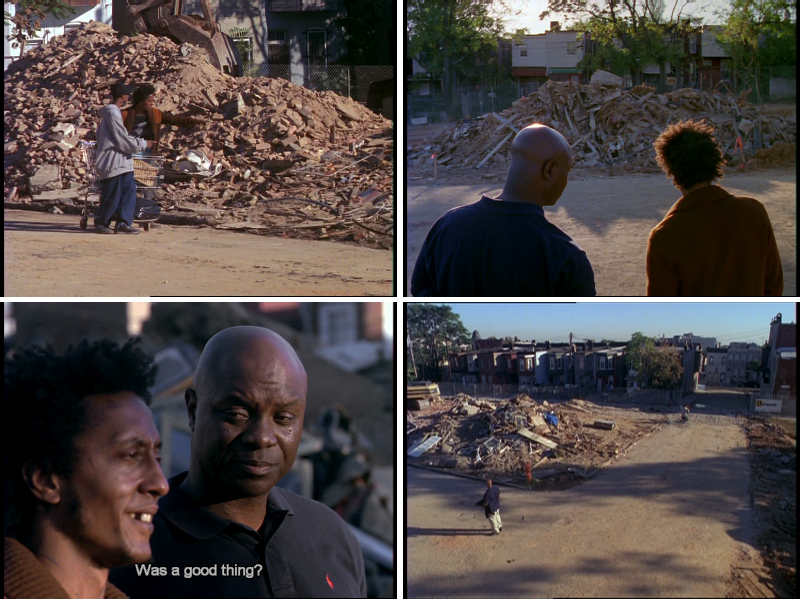
Contrast this to the way The Apprentice, reconciles its viewers to the “real world,” with no glimmer of alternative values. Yet it too is a melodrama, though of a different kind. There are, of course, many different kinds of melodrama, even on reality TV. One popular show which operates in a more conventional Dickensian mode, is Undercover Boss (2010-present), an American reality serial in which a corporation’s boss goes undercover to surveil his workers and—in the grand tradition of Victorian melodrama—discovers not only how hard they work, but how to be a better boss to them. This boss “solves” the individual problems of selected workers by learning their obstacles, encouraging them, and at the end bestowing upon them individual rewards for loyalty and hard work. Such is the constant moral of this serial melodrama.
It is fascinating that surveillance figures in all three of these serials melodramas. The boss’s undercover status allows him or her to surveil their workers and to arrive at a simplistic happy ending, though it hardy innovates the form of melodrama itself (Susan Schuyler, 2015, 43-65). In contrast, The Apprentice, which also permits the bosses minions as well as the viewer to constantly surveil the contestants and to report back to Trump, culminates, not in his recognition of their virtue, but in the more consequential recognition of their failures of loyalty to one another and to complete their tasks. The fact that only one contestant will remain standing at the end of an entire season’s gameplay prolongs the melodramatic suspense of who will win over a considerable length of time but gives ample, indeed weekly, opportunity for the rehearsal of failure and punishment. By upping the ante of competition in the firing of at least one member of the team each episode, focus is thrown upon a new type of hero: neither the kindly boss, nor the victim-hero, but what we might call the villain-hero, whose unreasonable, and often inscrutable, expectations are neither explained nor questioned but accepted out of fear.
What Trump innovated in this serial melodrama, and what arguably made the program an instant hit, was the spectacle of a seemingly new kind of truth-telling: a boss who did not want to be loved and recognized as good, but who’s special ability seemed to reside in his tough, no-nonsense ruthlessness (as Jeff Gaspin, NBC’s chief of reality shows put it).
It was once a truism of early French and Victorian melodrama that villains were the most popular characters on the stage. They would click their heels, roll their r’s hiss their s’s, torture the innocent, and conjure up the most primal of emotions. Audiences loved to hate them and they were played by the most famous and well-paid actors (Brooks, 34-35). Trump’s inflection of the popularity of the powerful villain into his hero-rescuer role is perhaps the most interesting twist of his reconstitution of the melodramatic imagination. We may laugh at his long ties and gravity-defying hair, and even his general orange-ness, but a good enough portion of the electorate—enough to have elected him—admires Trump for his blunt recognition of what he sees as the failure of liberalism. It roots for him in his bold defiance of political correctness and wanton expansion of state power. He has become the new hero of a tough neo-liberal hero era, willing to call out “bad hombres,” build a wall, ban Muslims and “Make America Great Again.”
Instead of hissing the villain for his harsh, arbitrary and unfeeling judgments, audiences of this neoliberal era have thrilled to the absolute power of a boss who was neither kind nor politically correct. Often viewed from his helicopter looking down at contestants (for example, on the street, selling lemonade) Trump seems ubiquitous and omniscient, knowing just whom to fire, luring contestants into quarreling with one another, firing a different one than expected, or as in our example, just firing them all. Through such maneuverings, arguably, Trump began to be recognized as a new kind of American hero, not just a rich celebrity, but a tough, blunt, no-nonsense leader who was considering a run for president. A melodrama like this—in which competitors are encouraged to identify with the arbitrary power of a new kind of villain-hero who could compensate for all the namby-pamby liberalism of the past—offered America’s own unwitting “apprenticeship” to government by Trump.
It should be obvious that any return to the more dignified form of tragedy would be beside the point. Tragedy has no commitment to popular democracy; for better, and for worse, melodrama does. What, then, is the best answer to Trumpian melodrama? Political scientist Elizabeth Anker has argued that since 9/11 a left-leaning form of melodrama, which she calls “left melodrama,” has tried to counter the increases in state power authorized by “right melodrama’s” demonstration of the suffering of 9/11 victims.
Anker believes that left melodrama has refused to “acknowledge the loss of left political theory’s guarantee that it provides a means to revolutionary freedom, as well as the loss of intrinsic moral virtue implicitly granted to its practitioners.” Left melodrama, in other words, is caught up in the same cycles of victimization and retributive violence as today’s right melodrama only with the victims and villains reversed.
Anker’s solution to this dilemma, is to take a cue from yet another form of melodrama, in her case Douglas Sirk’s 1955 “women’s weepie,” All that Heaven Allows, and the notion of failure inherent, she argues, in this particular subgenre of melodrama. She views this film as a critique of unsuccessful attempts to overcome “unfreedom” through recourse to the liberal idea of the sovereign subject by showing the failure of this melodrama to fall back on the intimacy of love relations as compensation for real social change. For her, the blocked love-relation in this film illustrates “the failure of freedom when freedom is envisioned as individual sovereignty” (239).
The envisioning of a more just future is certainly a desirable outcome for any melodrama that might offer alternatives to the Trumpian melodrama I have been describing. However, I am reluctant to turn, as Anker does, to a melodrama of failure by a European auteur who was subsequently discovered to be an exemplar of a “good”—meaning Brechtian and “distanciated”—melodrama by the 1970s film scholars I previously described. The gesture smacks of condescension on the part of elites who know anyway that the melodramatic hope for justice must always fail and who simply blame the gullible audiences who still hope for happy endings.
I believe that the worst thing we can do to melodrama is to condescend to it. The next worst thing, is to ignore it (2001). Either way we fail to account for its power and popularity. Like it or not, melodrama’s obsession with past injury remains a way of establishing moral legitimacy. Until we grasp the full extent of the melodramatic imagination over our politics, we will continue to blame melodrama for not living up to the grandeur of tragedy, or like David Remnick, turn to tragedy as the only true measure of our misfortune.
A better route, as I have already suggested, is to find examples of melodrama that do offer, within our contemporary political, moral, neoliberal context, hope beyond Brechtian irony, distanciation and failure. We need an example of melodrama that still hopes to right the wrongs that only popular culture melodrama can present, but without recourse to the always potentially fascistic villain hero who saves the day. If melodrama is our problem, and I believe it is, then better melodrama, one that does not flaunt failure and impasse, must be the solution.
I have argued that The Wire is a serial television melodrama that offers an appropriate counter to the The Apprentice. The Apprentice is a game which can only be won by being the last one standing and by playing the role of the “savvy subject” who can maneuver to be the last man or in case of The Apprentice (the sufficiently attractive) woman standing. There is thus only one “game” in The Apprentice, and only the rules set by the boss. Though it is a serial game with different contestants each season, the rules never change.
In The Wire the rules don’t change either, but they are discredited over time. And appropriately, this melodrama is neither that of total failure, nor one that pits a sovereign hero as answer to Trump’s charismatic embodiment of neoliberal power. Rather, The Wire offers a sense of what would be the just outcome to the suffering of its victims even though it rarely provide that outcome. This is the aspect of melodrama that Trump’s survivor-style melodrama has foreclosed. Nor can it be provided by the kindly Dickensian surveillance of Undercover Boss, where justice is a matter of paternalistic individuals working within capitalist rules. It is thus important to recognize the particular form of melodrama engineered by reality TV and the serial that gave Trump the “brand recognition” as a tough boss who would not let America get pushed around anymore.
What melodrama offers at its best and its worst is thus something that tragedy cannot supply. In The Wire it is ultimately a vision of a better governmentality, or what political scientist Wendy Brown has called “an alternative vision of the good . . . a vision in which justice would not center upon maximizing individual wealth or rights but on developing the capacity of citizens to share power and collaboratively govern themselves” (Brown 2005, 41). This is the good gained when the character Bubbles ceases to be a victim and becomes instead what both the police and the outlaw Omar are wont to call a “citizen.” When Brown argues the need for a “different figuration of human beings, citizenship, economic life and the political—to fashion a more just future” I can’t help but think that that figuration has in been achieved, not in a utopian picture of achieved fairness, not in a bleak tragedy of the triumph of injustice, but in the serial television melodrama that is The Wire.
By comparing The Wire to The Apprentice I am aware that I am melodramatically pointing to a good melodrama over an evil one. And I am certainly aware that one was popular on commercial network television and that the other barely survived on “elitist” cable. Nevertheless, I hope that this comparison shows that it is futile to blame melodrama itself as the problem. It also suggests that America does not need a charismatic hero who can out-Trump Trump to rescue it. Trump is playing a mass culture game of popular branding that relies on the plots and generated feelings and repetitions of serial melodrama. Its serial form on television led to his brand recognition as a tough, no-nonsense leader. Over the next four years, his success or failure will be played out within the format of the new kind of hero-villain he and serial television have invented. I don’t have the answer to how best to resist his game. I am fairly certain, however, that as citizens we cannot just play the roles of innocent victims of his villainy. I am also certain that if the opposition to Trump does not recognize the very form of the game he plays, and if we do not ourselves find ways to fight melodrama with better melodrama, that Trumpism will win.
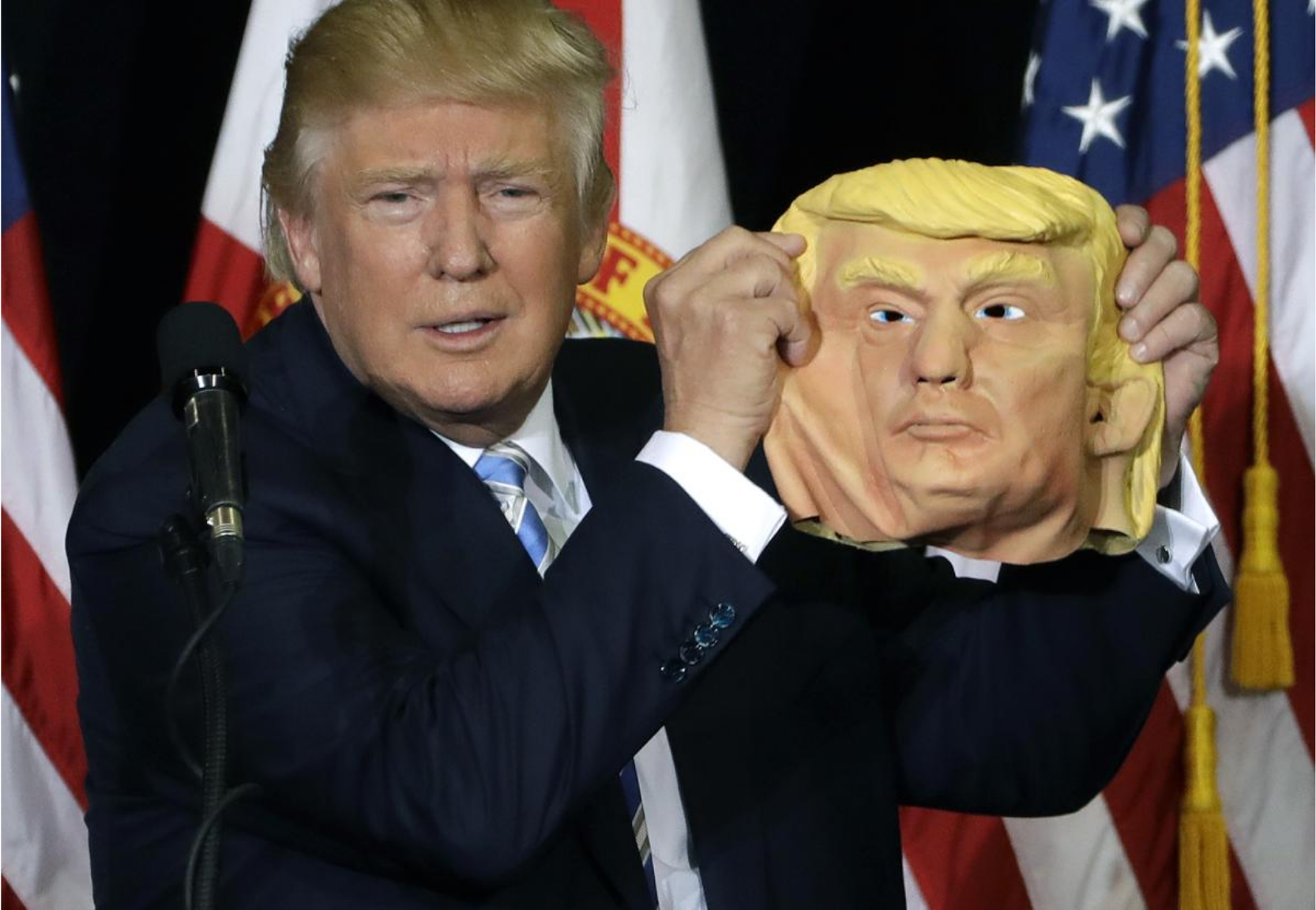
Bibliography :
Brooks, Peter. 1976. The Melodramatic Imagination. New Haven: Yale University Press.
Brooks, Peter. 1984. Reading for the Plot: Design and Intention in Narrative. Cambridge: Harvard University Press.
Brown, Wendy. “Neoliberalism and the end of liberal democracy” in Edgework, 2005, 37-59
Creeber, Glen. 2005. Serial Television: Big Drama on the Small Screen. London: British Film Institute.
Elsaesser, Thomas. (1972) 1991. “Tales of Sound and Fury: Observations on the Family Melodrama.” In Imitations of Life: A Reader on Film and Television, edited by Marcia Landy, 68-91. Detroit: Wayne State University Press.
Gledhill, Christine. 1987. “The Melodramatic Field: An Investigation.” In Home is Where the Heart Is: Studies in Melodrama and the Woman’s Film, 5-39. London: British Film Institute.
Hagerdon, Roger. “Doubtless to Be Continued: A Brief History of Serial Narrative.” In To Be Continued: Soap Operas around the World. Ed. Robert Allen. London: Taylor and Francis, 27-48.
Hansen, Miriam. 2000. “The Mass Production of the Senses: Classical Cinema as
Vernacular Modernism.” In Christine Gledhill and Linda Williams, eds. Reinventing Film Studies. London: Edward Arnold.
Hayward, Jennifer. 1997. Consuming Pleasures: Active Audiences and Serial Fictions from Dickens to Soap Opera. Lexington: University of Kentucky Press.
Heilman, Robert. 1968. Tragedy and Melodrama: Versions of Experience. Seattle: University of Washington Press.
Mittell, Jason. 2015. Complex TV: The Poetics of Contemporary Television Storytelling. New York: New York University Press.
Simon, David. 2004. “Introduction.” The Wire: Truth Be Told, by Rafael Alvarez. New York: Pocket Books.
Schuler, Susan. 2015. “Reality Television, Melodrama, and the Great Recession,” Studies in Popular Culture Vol. 37, No. 2 (Spring 2015) 43-65.
Williams, Linda. 2001. Playing the Race Card: Melodramas of Black and White from Uncle Tom to O.J. Simpson. Princeton: Princeton University Press.
Williams, Linda. 2014. On The Wire. Durham: Duke University Press.
Raymond Williams. 1973 [1961]. The Long Revolution. Harmondsworth: Pelican.
Raymond Williams. 1977. Marxism and Literature. Oxford: Oxford University Press.




